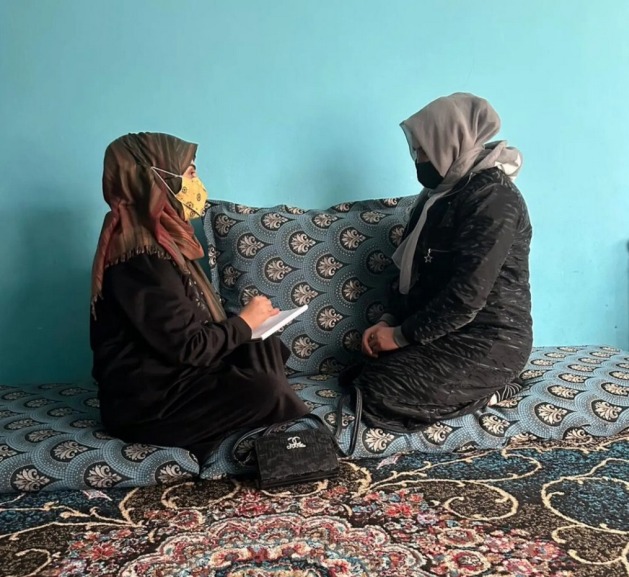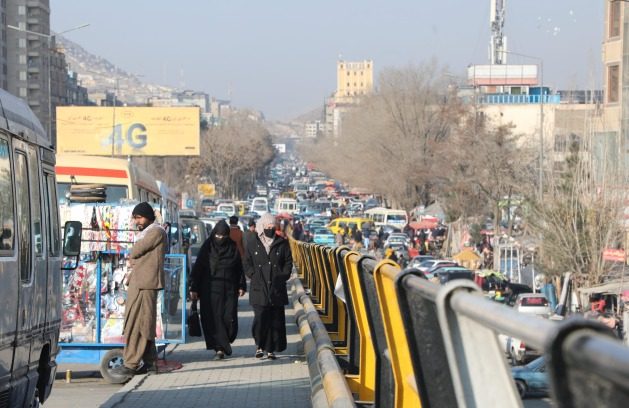Jan 21 (IPS) – Afghan women are enduring perhaps their most challenging time. Since the Taliban regained power four years ago, restrictions on women and girls have escalated, beginning with bans on education and paid employment.
Recently, the Taliban closed the few remaining employment opportunities for women, including positions in domestic and foreign NGOs. Women are now entirely barred from domestic or foreign NGO work. Unemployment among women is rising with the same frequency as new decrees are issued banning women form taking up various jobs.
Din Mohammad Hanif, the Taliban’s Minister of Economy, has warned non-governmental organizations against violating the decree banning women from being hired. Any breaches, he stated, would lead to the suspension of activities and revocation of licenses.
For the second time on December 28, 2024, the ministry sent out a letter, a copy of which was released to the media: “All non-governmental organizations are directed to strictly consider the decree banning women from working in NGOs and take the necessary actions accordingly”, cried the ministry.
Former female NGO employees describe the Taliban’s measures as “discriminatory, cruel, and inhumane.” United Nations High Commissioner for Human Rights, Volter Türk, also described the Taliban’s decree as deeply concerning and extremely discriminatory.
Stories of Loss and Devastation
The impact on women has been devastating. Razmaa Sekandari, 32, is one of the women who was forced out of her NGO job by the Taliban and ordered to stay at home.
“The head of our office, she says, forced all female employees to resign immediately, saying that if they don’t resign, the office will be closed indefinitely to everyone”. They had no option but to comply.
“I lost hope, says Ms. Razmaa, “I had no strength left and I couldn’t pick myself up on my feet”.
“And as the women and their colleagues were crying and hugging each other, the voice of the head of office thundered in a harsh tone”, ‘Hurry up, pack up your things and leave’
Continuing her narration Ms. Razmaa said, “In one of the foreign NGOs where I worked, we disbursed out small investment loans to women in Parwan province. It enabled some to raise chickens, and others reared cows. They had some income from the eggs, milk, and produced yogurt for themselves and their families”. But with the termination of their employment it has left Ms Razmaa wondering what to do next.
She shares a fate similar to hundreds of other women, some of who do not even have access to public information to learn of the new Taliban decree. As with all her colleagues, they have lost all hope and can hardly set foot outside the home.
“I had thought I could create jobs for women”, says, Ms Razmaa, who graduated in economics from Parwan University, “it didn’t happen”.
She became a stay-at-home woman after the Taliban decreed that she could no longer work.
“There are five of us in the family”, she says, “my mother is sick and my father is elderly, both of who stay at home with no income”.
About the other members of the family, Razmaa says her brother is a first-year law student. Her brother’s wife attended school up to the 11th grade when the Taliban banned females from having further education.
“In other words, we are all unemployed. I was the only one in the family who brought in income from my job, but the Taliban for no fault of ours, snatched it from us. We are at a loss as to what to do”, she sighed, out of frustration.

A Bleak Future for NGOs and Women
To Asad Wali, (not her real name) head of a foreign NGO in Parwan Province, the Taliban decree came as a surprise.
“We used to work in secret for the last two years”, Wali says. “Whenever our female employees went on field visits, they faced severe problems such as interrogation by the Taliban for not traveling with a mahram” (a male guardian).
In spite of such challenges, the women did pass through Taliban checkpoints using various pretexts, and were happy that, at least, they still maintained their jobs.
Asad Wali narrated the sad story, thus: “At the end of 2024, the project in which women were involved ended. We got a new donor. The proposal and all the documents were ready. The next day, we went to the Department of the Ministry of Economy in Parwan province, and they directly told us that due to the new Taliban decree, women’s activities had been completely banned.”
Terminating the activities of foreign and domestic non-governmental organizations in Afghanistan will only make the already harsh conditions worse for women.
These organizations play a key role in meeting the people’s basic needs and supporting the country’s infrastructure.
In the absence of these organizations, women would suffer severe consequences because NGOs were the main source of crucial social, economic and health services. Without them, poverty leading to forced marriages would rise among women.
All of the activities that the NGOs provided, such as skills, vocational training, and small holding agriculture, which improved the lives of women, are now being taken away. With unemployment and poverty rising, most of Afghan families are bracing themselves for a bleak winter.
© Inter Press Service (2025) — All Rights ReservedOriginal source: Inter Press Service




